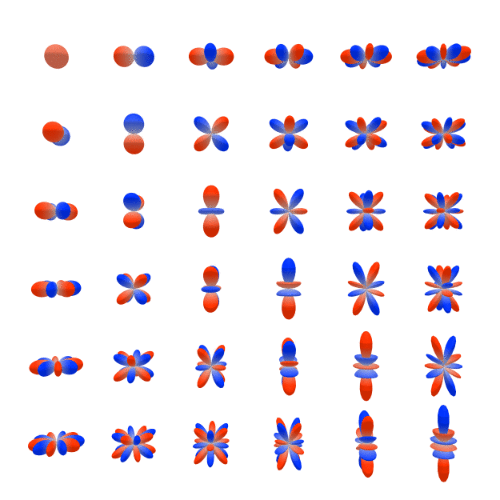e3nn
e3nn: a modular PyTorch framework for Euclidean neural networks
Welcome!Getting Started
How to use the Resources
Installation
Help
Contributing
Resources
Math that's good to know
e3nn_tutorial
e3nn_book
Papers
Previous Talks
Poster
Slack
Recurring Meetings / Events
Calendar
e3nn Team
Welcome to e3nn!
This is the website for the e3nn repository
e3nn-jax Doc
e3nn-torch Doc
E(3) is the Euclidean group in dimension 3. That is the group of rotations, translations and mirror.
e3nn-torch and e3nn-jax are respectively pytorch and jax libraries that aims to create E(3) equivariant neural networks.

Getting Started
How to use the Resources
If you’d like to generally learn what e3nn is and what it’s used for, check out some of previously recorded talks and skimming some of the papers. If you’d like to try out e3nn, the first step is to install it.
Once you have e3nn up and running, try out the Jupyter notebooks in e3nn_tutorial. This will give you a feel for the primary data types and classes in e3nn. You can also dive into more rigorous math resources. This reading will be helpful for parsing even the most techincal parts of the relevant papers.
If you want to talk to other folks using e3nn, you are most welcome to join our Slack.
Installation
- For pytorch run
pip install --upgrade e3nn. - For jax run
pip install --upgrade e3nn-jax.
Resources
e3nn_docs
The documentations are:
e3nn_tutorial
Math that’s good to know
e3nn makes use of group theory and representation theory. You don’t need to be knowledgeable on these topics to start using e3nn but it might be useful to have some relevant resources handy. Some of our favorite resources are:
- Group Theory: Application the Physics of Condensed Matter by Dresselhaus, Dresselhaus, and Jorio
- Lie Algebras in Particle Physics by H. Georgi
- Lecture Note on Group Theory in Physics by D. Arovas
- Group Theory in a Nutshell for Physicists by A. Zee
- Linear Representations of Finite Group by J-P. Serre
Previous Talks
Some previous recorded talks on e3nn.
2020/11 Euclidean Neural Networks for Physics ∩ ML, November 18, 2020. (slides // video)
2020/09 Unintended Features of E(3)NNs, Workshop on Equivariance and Data Augmentation (video // slides), University of Pennsylvania, September 4, 2020
2020/09 Lecture on Symmetry and Equivariance in ML, Berkeley Lab Deep Learning School (video // slides), Berkeley Lab, September 3, 2020.
2020/07 Neural Networks with Euclidean Symmetry for Physical Sciences, 1st Workshop on Scientific-Driven Deep Learning (SciDL) (video // slides), July 1, 2020
2020/01 An autoencoder for discrete geometry, Applied Machine Learning Days – AI and the Molecular World (video), EPFL, January 27-28, 2020, Lausanne, Switzerland
2019/12 Euclidean Neural Networks for Emulating Ab Initio Calculations and Generating Atomic Geometries, eScience Institute Seminar (video), University of Washington, Seattle, WA
2019/09 Euclidean Neural Networks for Emulating Ab Initio Calculations and Generating Atomic Geometries, Workshop I: From Passive to Active: Generative and Reinforcement Learning with Physics, (video // slides), IPAM at UCLA, Los Angeles, CA
Poster
A poster overview of the e3nn framework.
Papers
Please see this repo for an up to date list of papers on equivariant networks.
Slack
The e3nn developers and several collaborators discuss ideas and help each other out with projects via Slack. If you’d like to join the Slack, please send an email to Mario geiger.mario@gmail.com.
Help
To get help with a question or code bug, please go on e3nn-jax:discussions or e3nn-torch:discussions.
Contributing
To get involved with the development and improvement of e3nn, please send an email to geiger.mario@gmail.com.
e3nn Team
Core-development team
(aka the people answering pull-requests)
- Mario Geiger (
e3nn’s BDFL,geiger.mario@gmail.com) - Tess Smidt (
tess@e3nn.org)
Collaborators and Contributors
|
|